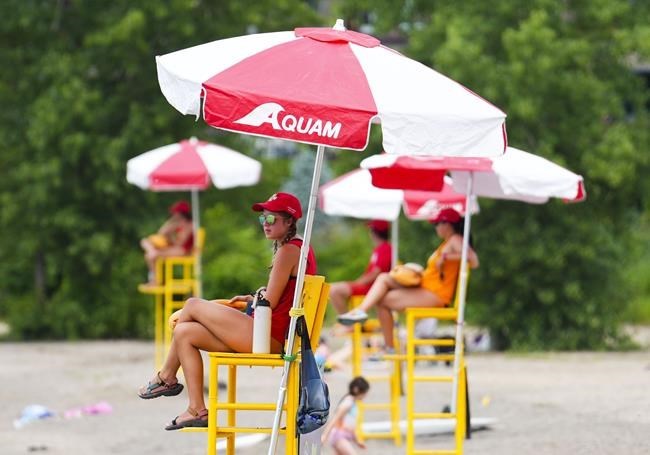TORONTO — Ontario has lowered the minimum age requirement to become a lifeguard to 15 years old, saying the change is aimed at addressing a staffing shortage across the province.
The minimum age requirement was previously 16, and the province said the change aligns with updated requirements from the Lifesaving Society's certification course.
"Lowering the age for youth to become lifeguards creates more job opportunities for youth in a rewarding position that can help keep community pools and recreational camp waterfronts safe," Health Minister Sylvia Jones wrote in a statement Friday.
The new minimum age requirement – which took effect Friday – also applies to becoming an assistant lifeguard and an aquatic instructor.
The Canadian Swim School Alliance, which provides swim schools and other aquatics organizations with best-practice standards, welcomed the change.
"This is a fantastic announcement for swim schools, municipal pools and waterparks," Tiernan Murphy, chair of the organization, said in an interview.
Previously, 15-year-olds could earn a certification to become a lifeguard but couldn't be hired as one in Ontario until they turned 16, Murphy said.
The change means a certified 15-year-old could be hired as a lifeguard soon after qualifying for the job, meaning their skills would be fresh, he said.
"Ontario has one of the lowest drowning rates in the world. Because of this announcement, it's going to get better because there's no gap between getting a certification and applying it in real-world situations," Murphy said.
Chris Herstek, director of recreation with the City of Hamilton, also saw the change as a good development.
"It really does help us out quite a bit that we'll be able to recruit additional staff for future years," he said.
The COVID-19 pandemic halted in-person lifeguard testing for a period of time, causing a shortage of eligible lifeguards and fierce competition for lifeguards across Ontario pools.
Last summer, Toronto had to cancel 169 swim courses due to a lack of instructors. Other municipalities and provinces also reported shortages.
In Hamilton, Herstek said 15-year-old lifeguards at city pools will likely start out by guarding leisure, lane and adult swims part time before being trained over a year to independently guard and teach swim lessons.
"Our pools are very large with lots of folks around," Herstek said. "It's a very important job and we take it seriously."
The Lifesaving Society Ontario's pool lifeguard certification requires over 100 hours of training, including the recovery of a 20-pound object underwater in under 40 seconds and swimming 400 meters in under 10 minutes.
For waterfront certification, using a rescue craft and other outdoor first aid know-how is required.
In April, Lifesaving Society Ontario said the number of lifeguard certifications was down about 20 per cent from 2019 levels, but they had been rebounding quickly since the lowest levels in 2020.
This report by The Canadian Press was first published June 2, 2023.
Kiernan Green, The Canadian Press



